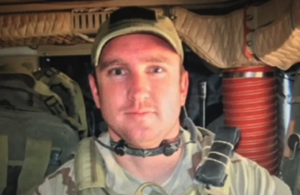Military medical malpractice is a unique and complex issue that impacts thousands of veterans each year. Unlike civilian medical malpractice cases, military medical malpractice often involves specific legal challenges due to the government’s role in providing care. For veterans, the consequences of malpractice can be particularly severe, as they not only affect their immediate health but also have long-term impacts on their benefits. In this blog, we will explore how military medical malpractice affects veteran benefits, the legal landscape surrounding such cases, and the options veterans have for seeking justice and securing their deserved benefits.
Understanding Military Medical Malpractice
Military medical malpractice occurs when a healthcare provider in a military facility fails to meet the standard of care, leading to injury, illness, or even death. Examples can include surgical errors, misdiagnoses, failure to treat, or even negligent prenatal care. Historically, under the Feres Doctrine, veterans and active-duty service members were barred from suing the federal government for injuries resulting from military medical malpractice. However, in recent years, legislative changes have made it possible for veterans to seek compensation for such cases.
How Military Medical Malpractice Affects Veterans
Military medical malpractice can have far-reaching consequences on a veteran’s health, financial stability, and overall well-being. Here are some of the ways it impacts veterans:
1. Physical and Emotional Consequences
Veterans who suffer from medical malpractice often face prolonged physical pain, reduced mobility, or the need for further medical treatment. For instance, a misdiagnosis of PTSD or traumatic brain injury can lead to inappropriate or delayed treatment, which may exacerbate symptoms and impair recovery. The emotional toll can also be significant, as veterans must cope with the trauma of their initial illness or injury, compounded by the negative effects of malpractice.
2. Impact on Veteran Benefits
One of the most profound ways that military medical malpractice affects veterans is through its impact on their benefits. Veterans who experience malpractice may find themselves struggling to access necessary healthcare services or receive compensation for their injuries. Here are a few ways benefits are affected:
- Disability Benefits: Veterans with injuries or illnesses related to medical malpractice may need to seek additional disability benefits. The Veterans Administration (VA) may determine the severity of the injury based on the malpractice, which could affect the amount of compensation provided. Moreover, veterans might face difficulties proving that their condition resulted from malpractice rather than their service, complicating the claims process.
- Healthcare Access: Veterans relying on the VA for healthcare may struggle to receive appropriate care if they have been harmed by malpractice. A lack of trust in military medical facilities can lead veterans to seek civilian care, which might not be covered by the VA. Consequently, this can place a financial strain on veterans who need ongoing treatment.
- Pension and Compensation Adjustments: Depending on the nature of the injury or illness, malpractice can impact a veteran’s eligibility for pension or other forms of compensation. If the malpractice results in a debilitating injury, the veteran may qualify for an increased level of compensation. However, the process of securing this adjustment can be daunting, requiring extensive documentation and evidence.
3. Career and Employment Implications
Military medical malpractice can disrupt a veteran’s ability to work, especially if the malpractice resulted in a disabling injury. Veterans who planned to transition to civilian careers may find their employment prospects limited by the physical and emotional impacts of malpractice. Furthermore, those who do find employment may encounter challenges if their condition requires ongoing treatment or accommodations, potentially affecting their earning potential and long-term financial stability.
Legal Recourse for Veterans Affected by Military Medical Malpractice
While pursuing a military medical malpractice claim can be challenging, recent changes in legislation have opened new avenues for veterans to seek justice and compensation. Here’s an overview of the options available:
1. Administrative Claims Under the FTCA
The Federal Tort Claims Act (FTCA) allows veterans to file administrative claims against the federal government for malpractice that occurred in military healthcare facilities. However, there are specific steps that must be followed:
- Filing the Claim: Veterans must submit a claim through the Department of Defense, detailing the alleged malpractice and providing evidence of their injury. This step requires careful documentation, including medical records and expert testimony.
- Review Process: The government has six months to review the claim and decide whether to offer a settlement or deny the claim. During this period, the government may request additional information or conduct its investigation.
- Potential Litigation: If the claim is denied, veterans may file a lawsuit in federal court. It’s essential to consult with an attorney who specializes in military medical malpractice, as these cases often involve complex legal issues and strict filing deadlines.
2. The National Defense Authorization Act (NDAA) for Military Malpractice Claims
The National Defense Authorization Act (NDAA) allows veterans to seek compensation directly from the Department of Defense for injuries resulting from military medical malpractice. This act applies to active-duty service members and veterans who suffered malpractice while in military facilities. The process under the NDAA differs from the FTCA, as it involves filing a claim with the Department of Defense rather than pursuing a lawsuit in federal court.
- Eligibility Requirements: Not all cases qualify for compensation under the NDAA. Veterans must meet specific criteria, including proving that the malpractice directly caused their injury or illness.
- Compensation Limits: Unlike FTCA claims, which can result in significant settlements, the compensation available under the NDAA may be capped at certain amounts. Veterans should work with an attorney to understand their eligibility and potential compensation under the NDAA.
3. Veterans Affairs Disability Compensation Claims
In addition to pursuing malpractice claims, veterans may also file for disability compensation through the VA. This process requires proving that the injury or illness resulted from malpractice, which can be challenging without legal representation. Working with an attorney can help veterans navigate the VA’s complex claims process and secure the benefits they deserve.
The Importance of Legal Representation
Military medical malpractice cases require a deep understanding of both military and civilian legal systems. A knowledgeable attorney can help veterans gather the necessary documentation, present their case effectively, and advocate for their rights throughout the process. With the help of experienced legal representation, veterans can improve their chances of securing compensation and restoring their benefits.
Conclusion:
If you or a loved one has been affected by military medical malpractice, don’t wait to seek the justice you deserve. At Khawam Ripka LLC, we specialize in military medical malpractice cases and are committed to helping veterans navigate the complexities of the legal system. Our team will work tirelessly to ensure you receive the compensation and benefits you’re entitled to.
Reach out to us today for a consultation. Let us help you take the first step toward securing your future and protecting your rights. Contact Khawam Ripka LLC now and let us be your advocate in this challenging journey.

 Call Now- Open 24/7
Call Now- Open 24/7





